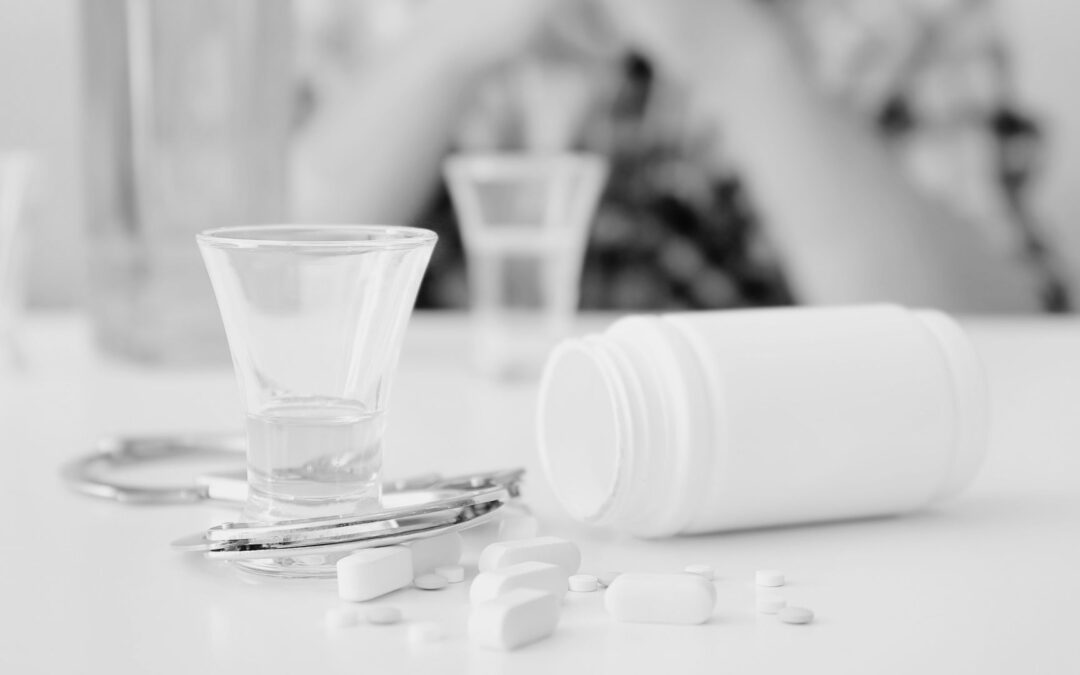If you take antidepressants daily, it’s critical to understand the risks of combining these prescriptions with alcohol. The combo can harm your mental health and cause serious adverse effects. In this blog article, we’ll explain why you should put your health first by avoiding this combo and when to seek help from treatment specialists.
Mixing alcohol with antidepressants can exacerbate mental health issues.
Drinking alcohol while on antidepressants can significantly diminish the effectiveness of your medication, making it harder to manage depression or anxiety. While alcohol might seem to lift your spirits temporarily, it usually leads to intensified feelings of sadness and anxiety in the long run. For those in the San Diego area dealing with mental health challenges, it’s especially important to steer clear of alcohol to avoid worsening symptoms.
Alcohol increases side effects with medications.
If you’re taking additional medications, such as anti-anxiety drugs or sleep aids, mixing these with alcohol can amplify side effects. Alcohol can interact negatively with various prescriptions, leading to drowsiness, impaired coordination, and confusion. For your safety, consult your healthcare provider in San Diego to review all medications and discuss the risks associated with alcohol consumption.
MAOIs pose special risks with alcohol.
For those prescribed monoamine oxidase inhibitors (MAOIs), the dangers of mixing alcohol can be particularly severe. This combination may cause dangerous spikes in blood pressure, which could result in serious health issues. If you’re on MAOIs, familiarize yourself with safe foods and drinks, and always seek guidance from your healthcare provider about avoiding hazardous interactions.
Alcohol impairs judgment and coordination significantly.
Alcohol can greatly impair your judgment and coordination when combined with antidepressants. This risk is heightened compared to drinking without medication, increasing the likelihood of accidents, especially when driving or handling machinery. If you’re taking antidepressants, it’s vital to avoid alcohol to maintain focus and safety.
Alcohol increases drowsiness and sedation effects.
Antidepressants can cause drowsiness, and alcohol tends to exacerbate these effects. This combination can leave you feeling excessively tired or sluggish, disrupting your daily activities and overall well-being. If you’re already facing these side effects from your medication, consuming alcohol will likely intensify them. To sustain energy and mental clarity, it’s advisable to refrain from drinking while on antidepressants.
Consistent medication use is crucial for effectiveness.
Antidepressants work best when taken consistently, ensuring stable medication levels in your body. Alcohol can disrupt this balance, leading to severe mood fluctuations. Additionally, stopping and restarting medications can reduce their effectiveness and prolong recovery. To support your treatment, it’s essential to follow your doctor’s prescribed regimen and resist the temptation to skip doses due to alcohol use.
The cycle of depression and alcoholism is damaging.
Many individuals with depression may turn to alcohol as a coping mechanism, increasing the risk of developing alcoholism. This can create a vicious cycle where alcohol exacerbates mental health issues, complicating recovery. If you find yourself relying on alcohol, consider seeking substance abuse counseling or a treatment program. Local support groups, such as Alcoholics Anonymous in San Diego, can also provide valuable resources to help manage alcohol use while addressing depression.
Seeking Help in San Diego
At our San Diego facility, we provide a trauma-focused treatment approach tailored specifically for women. Our therapists, trained in EMDR, IFS, and other evidence-based techniques, ensure you receive personalized care. In our residential program, you can meet with an individual therapist twice weekly and a trauma specialist up to twice a week, along with weekly access to a psychiatrist and nutritionist—offering up to six individual sessions, surpassing most programs. Additionally, we incorporate group therapy and holistic therapies like acupuncture, yoga, and our engaging Rock to Recovery music therapy program, supporting your journey to healing and empowerment.
Experience San Diego’s premier mental health treatment center, exclusively for adult women, transgender, and nonbinary individuals. Whether you’re facing trauma, PTSD, anxiety, depression, or broken relationships, Wings Recovery offers a safe, supportive refuge where you can begin your healing journey and work toward creating the life you dream of.
With options for both Intensive Outpatient Programs (IOP) and residential mental health care, we’re here to guide you through every step.
Ready to start?
Call us at 1-888-790-9377 to speak with our caring, professional therapists and take the next step toward recovery today or Verify Your Insurance here.
_________
References:
www.mayoclinic.org

